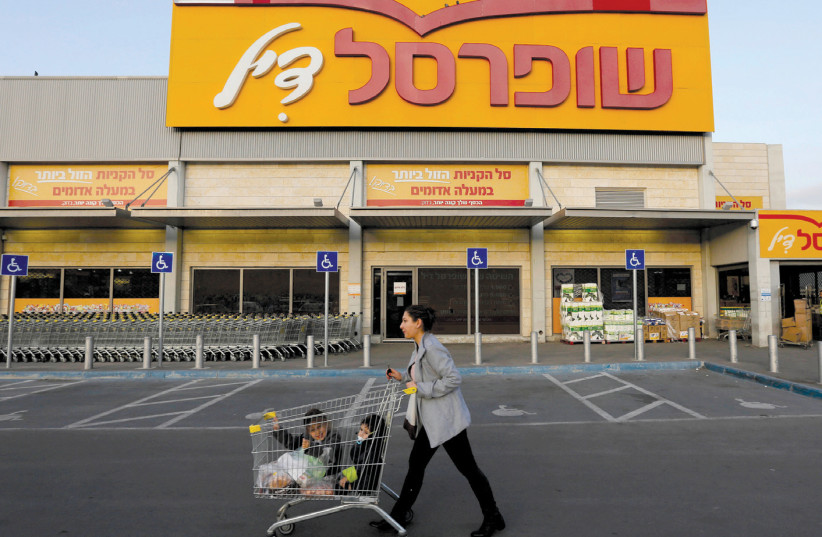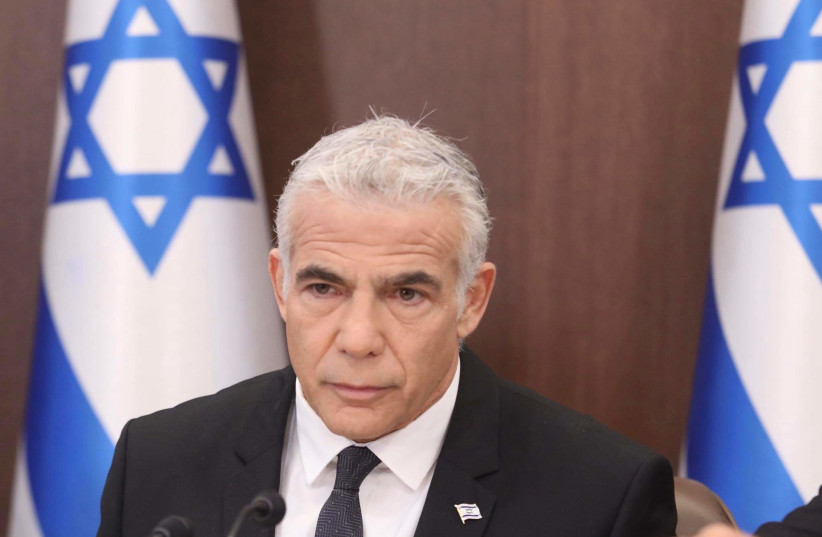Rising inflation in Israel and worldwide has been on the forefront of the money-minded for the past year, and the government isn’t sitting on its hands and watching idly as prices surge.
A months-long struggle by the Prime Minister’s Office and the Finance Ministry against growing costs and the Israel Competition Authority’s ongoing investigation of retail price collusion between supermarket chains and food retailers strongly illustrate an effort to push back against surging inflation.
An extensive probing
In the latest chapter of the Competition Authority’s supermarket/retailer price-collusion investigation, Shufersal chairman Itzik Abercohen has been brought in for questioning regarding the retail giant’s participation in the suspected act.
The suspicion of collusion can be attributed, in part, to allusions from the Strauss Group and other importers last year, suggesting that they were considering raising prices. This raised some red flags.
“We know that when you reduce prices, you advertise that so that customers will be attracted,” said Dr. Alexander Coman of Tel Aviv University’s Faculty of Management. “But why would you advertise that you’re raising prices? To collude with your competitors.”
“You’re basically telling your competitors, ‘Look, we’re raising our prices. You raise your prices, and the consumer will take it as a force of nature,’” he said.

If these suspicions are proven true, it would be in violation of the Food Law of 2014, which explicitly regulates the relationship between suppliers and retailers in the food market.
The investigation’s depth and comprehensiveness denotes the Competition Authority’s strong commitment to uncovering the full story. This is Abercohen’s second time being questioned on the matter, having undergone similar questioning at the onset of the investigation last November.
Last month, Strauss Group CEO Giora Bardea and other leading Strauss executives were also questioned. Willi-Food chairman and controlling shareholder Zvi Williger was questioned in March, followed by a raid of the food importer’s offices in April.
Many other top retail and import executives have granted evidence to the investigation, including Rami Levy controlling shareholder Rami Levy, Osher Ad owner Aryeh Boim, Diplomat Holdings CEO Noam Weiman, several senior Unilever Israel executives and Victory Supermarket Chain CEO and controlling shareholder Eyal Ravid.
The Competition Authority has yet to issue a statement regarding the investigation’s ultimate findings, but Coman wasn’t hopeful.
“There’s a very, very slim chance that they would actually be able to prosecute,” he said, adding that prior instances of executives suspected of colluding who received jail time came as a result of having recorded evidence of the collusion actually occurring. “In this case, they’ve just gone on the media and said, ‘We’re going to be raising prices by X percent.’ So what?”
Of significance is Ravid’s announcement on Sunday that he intends to refuse recent requests to increase prices from several importers, including Diplomat, Schestowitz and Kimberly Clark. Ravid’s statement followed a similar announcement from Shufersal.
Prime Minister Yair Lapid applauded the decision during a cabinet meeting later that day. “I congratulate them,” he said. “This is how it should be.”
“I’ll say from here to all the players in the market: Those who raise prices irresponsibly may wake up in the morning and find themselves with competition that they did not expect,” Lapid said last week. “This government believes in competition and opening markets and will not hesitate to act”
Israeli Prime Minister Yair Lapid
Lapid takes on the mantle
Lapid has wasted little time in promoting retail competition. Since the incumbent leader claimed his position last month, he has dutifully accepted the torch that former prime minister Naftali Bennett carried against the formation of monopolies and the promotion of market competition.
“I’ll say from here to all the players in the market: Those who raise prices irresponsibly may wake up in the morning and find themselves with competition that they did not expect,” Lapid said last week. “This government believes in competition and opening markets and will not hesitate to act.”
In the same meeting, he highlighted an initiative to introduce more retail supermarkets to the ecosystem. In the coming months, it is expected that French supermarket giant Carrefour and Netherlands-based retail chain SPAR will make their way to Israel. Supermarket chain Rami Levy has announced its upcoming foray into the nonfood retail market.

Lapid is following suit from Bennett, who made several comprehensive moves during his tenure as prime minister to promote market competition.
In early June, Bennett and Finance Minister Avigdor Liberman agreed to the abolishment of several dozen national import standards that block imports from developed countries, many of which deviate from international standards. In so doing, they opened the door for parallel imports of products and brands into Israel, widening the spectrum of brands and products available to consumers.
“From now on, anyone will be able to bring any product that meets the European standard,” Bennett said. “The market will be open to competition and a variety of products, without unnecessary bureaucracies and especially at much lower costs. We have promised to reduce unnecessary regulation, and we are following through.”
The bottom line, which keeps going up
The aforementioned efforts, along with tax adjustments, aid packages and small-business compensation plans enacted throughout the past year, are all part of the government’s continued efforts against the ever-rising cost of living.
The nation’s inflation rate has risen more than twofold in the past year, from 1.9% to a formidable 4.4% as of July. This number exceeds the upper limit of the Bank of Israel’s target inflation rate of 3%, and it has led the bank to increase its interest rate twice within the year.
Israel’s rising cost of living is reflective of the current wave of inflation sweeping the globe because of the war in Ukraine, putting a strain on the distribution of wheat and fuel, which adds to the already strenuous aftershock of the COVID-19 pandemic’s disruption of global supply chains and distribution.
These events have caused increased scarcity in necessary goods, resulting in rising prices and a heavy strain on wallets around the world.
Lapid has made it clear that fighting Israel’s steadily rising inflation rate is a dominant item on his to-do list. At the cabinet meeting last week, he said a reduction in gas prices was “only the beginning.”
“This government will lead a determined campaign on the cost of living,” Lapid said. “The cost of living is a scourge, and we are determined to address it. There can’t be a rich country here with citizens who don’t [cover their monthly expenses]. For 15 years, the struggle against the cost of living was completely neglected – they simply did nothing. We are changing that now.”
